Barely a third of military families would recommend a career in uniform, according to the latest survey highlighting the Pentagon’s problems.
In 2016, more than half of them praised a military career.
They said life was getting worse because military spouses couldn’t find jobs, health services were poor and housing was in disrepair.
It is according to a survey of more than 7,400 employees for Blue Star Families, a non-profit organization.
This comes amid a military recruitment crisis, which has seen the army lose 15,000 troops compared to its target of 65,000 for the last financial year.
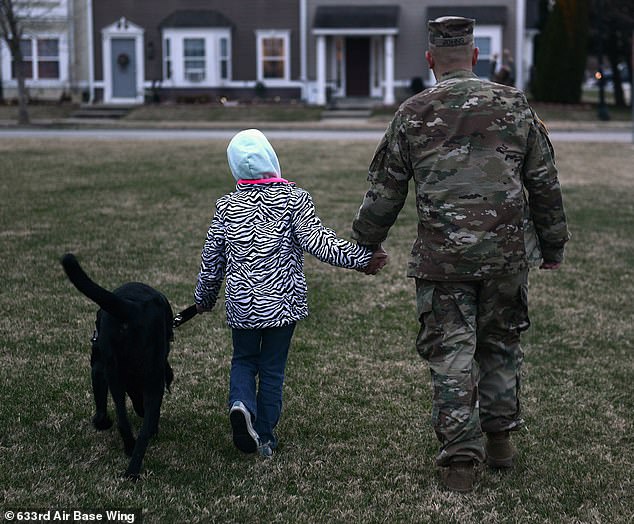
Military families complain about the quality of housing, schools and health care. Pictured: A military police officer walks with his daughter and dog at Joint Base Langley-Eustis, Virginia.
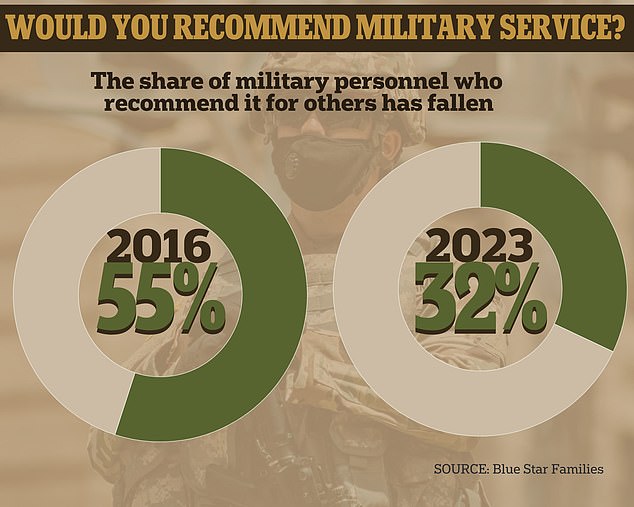

Today, just a third of military families would recommend a career in uniform, according to a survey of more than 7,400 Blue Star family personnel.
This undermines U.S. efforts to maintain a military edge over its strategic competitor, China.
The forces are struggling to enlist members due to salary competition in a tight job market and many Gen Zers are avoiding life in uniform – as many of them simply aren’t fit enough to enlist.
Jessica Strong, a researcher at the charity, said the Pentagon needed to improve the lives of those in uniform.
“Military families represent the most critical untapped potential to solve the national recruiting crisis,” Strong said.
“To save this all-volunteer force, we must address the concerns of military families and the stories they have told us during this research.”
But the investigation showed the army was heading in the wrong direction, she added.
“Ongoing quality of life issues, such as spousal unemployment, limited child care, housing costs and barriers to health care,” have been a major turn-off for military families, she added.
In 2016, 55 percent of active duty personnel and their family members would recommend life in uniform.
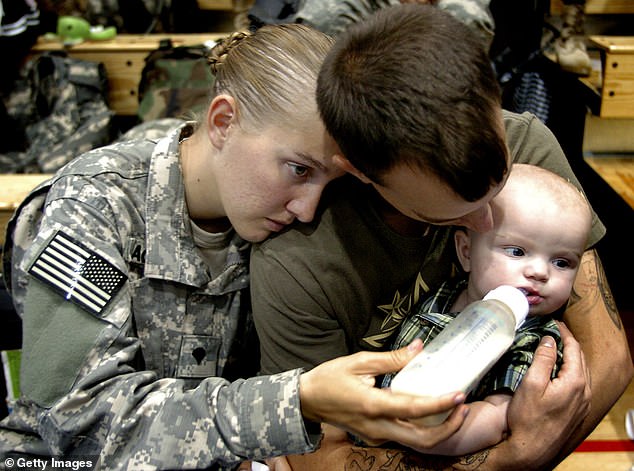

A member of the 82nd Airborne Division feeds his five-month-old child at Fort Bragg, North Carolina, where poverty, hardship and food insecurity are common.
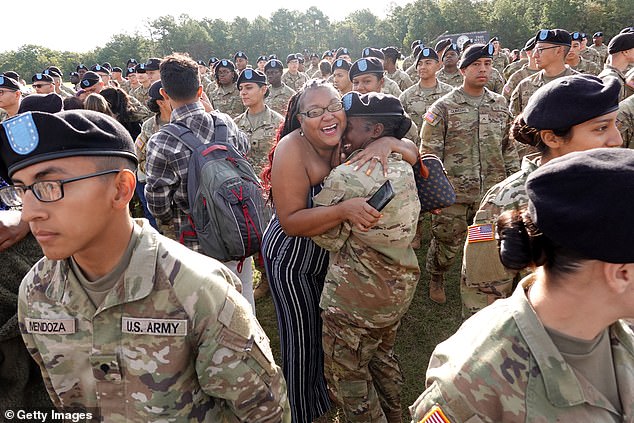

A Family Day ceremony at Fort Jackson in September 2022 in Columbia, South Carolina. Newcomers to the Army serving on bases are among the most likely to struggle to put enough food on the table.
Last year, that figure had fallen to 32 percent.
Nearly half said military spouses had trouble finding work — a common problem among families posted to remote bases.
Unemployment for military spouses is about five times the national average.
38 percent complained about being separated from family, 37 percent said pay was too low, 36 percent said housing was in poor condition and a third said they were worried about education of their children.
About a quarter said they wanted mental health advice but couldn’t get it.
One in six people said they were not always able to put enough food on the table.
The findings echo concerns about money, pay, benefits and struggles faced by many service members and their spouses who spoke to DailyMail.com about family life in uniform.
The U.S. military announced earlier this year that it would reduce the size of its forces by about 24,000 troops, or nearly 5 percent, and restructure to be better able to fight the next major war.
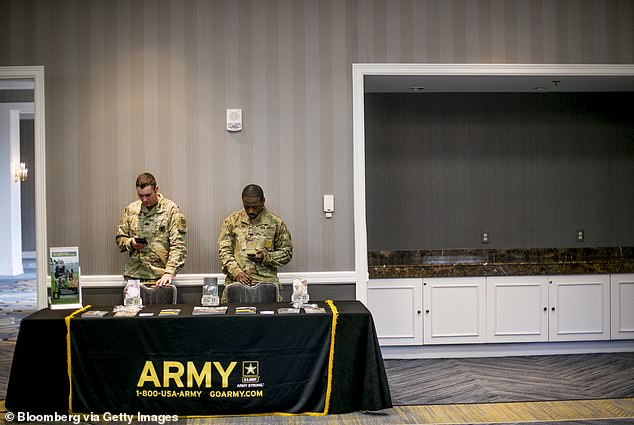

Army leaders have spoken of difficulties in recruiting recruits, leading to a shortage of 15,000 troops last year. Pictured: Army recruiters at a Michigan job fair
The reductions affect about 3,000 Army Special Forces members and many counterinsurgency roles that were created during the wars in Iraq and Afghanistan but were no longer needed.
During the last fiscal year, which ended September 30, the Navy, Army and Air Force failed to meet their recruiting goals.
The Marine Corps and the small Space Force have achieved their goals.
The army has recruited just over 50,000 recruits, far short of the publicly announced target of 65,000.
Last fiscal year, the Army also missed its enlistment goal by 15,000. That year, the goal was 60,000.
The service has launched a major overhaul of its recruitment to focus more on young people who have spent time at university or are looking for early career jobs.
It is also about training a new professional force of recruiters, rather than relying on soldiers randomly assigned to this task.
